
The 4th International Electronic Conference on Water Sciences
Part of the International Electronic Conference on Water Sciences series
13–29 November 2019
urban water, hydraulic cycle, Climate Change
- Go to the Sessions
-
- A. Managing Water Resources from Aquifers, Rivers and Lakes
- B. Drinking Water Treatments and Processes with Special Focus on Developing Countries
- C. Water Supply and Distribution Systems
- D. Sanitary, Storm and Combined Sewers and Related Control Works
- E. Wastewater Treatment Modeling, Optimization and Control
- Event Details
Welcome from the Chairs
Conference Title: Urban Hydraulic Cycle in a Climate Changing Environment
We are pleased to welcome you to the 4th International Electronic Conference on Water Sciences (ECWS-4), which will be held online, promoted by the open-access journal Water https://www.mdpi.com/journal/water.
In the last few years, three International Electronic Conferences on Water Sciences (ECWS-1, ECWS-2, and ECW-3) have addressed important water-related aspects. A fourth conference, aimed at deepening the discussion on issues of the urban hydraulic cycle (UHC), is needed, with the attention focused on water resources availability and exploitation and related management and works, drinking water processes, supply and water distribution systems, storm and sanitary sewers, and wastewater treatments.
Climate change can alter the balance between the different components of the hydrological cycle. The induced variability may affect water resources availability, people’s lifestyle, and the behavior of water systems as a whole. It is necessary to introduce new models, processes, and methodologies for better (a) understanding how to exploit the available water resources and maintaining a sustainable regime of water use; (b) improving drinking water quality and sanitation, particularly in developing countries; (c) managing the water supply and distribution systems to reduce energy consumption and leakages, ensuring good quality; (d) designing, monitoring, and operating sanitary, storm, and combined sewers avoiding pollutant dispersion in the environment and urban floods; and (e) developing new wastewater treatments and processes to improve the water quality returned to the environment.
The ECWS-4 invites researchers from the academia as well as from the industry to contribute with novel ideas and experiences to deal with processes within the context of UHC, making references to the following topics framed in a climate changing environment with a special focus on sustainability:
- Managing Water Resources from Aquifers, Rivers and Lakes
- Drinking Water Treatments and Processes with Special Focus on Developing Countries
- Water Supply and Distribution Systems
- Sanitary, Storm and Combined Sewers and Related Control Works
- Wastewater Treatment Modeling, Optimization and Control
Conference Secretariat
Vanessa Sun
Email: ecws@mdpi.com
Call for Submissions
The 4th International Electronic Conference on Water Sciences (ECWS-4) will be held from 13 to 29 November 2019 online . This event enables the researchers of research field to present their research and exchange ideas with their colleagues without the need to travel. All proceedings will be published on the conference homepage in open access format.
Through this event, we aim to cover the following topics:
- Managing Water Resources from Aquifers, Rivers and Lakes
- Drinking Water Treatments and Processes with Special Focus on Developing Countries
- Water Supply and Distribution Systems
- Sanitary, Storm and Combined Sewers and Related Control Works
- Wastewater Treatment Modeling, Optimization and Control
The conference will be completely free of charge—both to attend and for scholars to upload and present their latest work on the conference platform. Selected papers presented in ECWS-4 will be published in a Special Issue of journal Water undergone a full peer-review (ISSN 2073-4441; Impact Factor: 2.524 (2018) with a 20% discount on the APCs); ECWS-4 offers you the opportunity to participate in this international, scholarly conference without having the concern or expenditure of travel — all you need is your computer and access to the Internet. We would like to invite you to “attend” this conference and present your latest work.
Abstracts (in English) should be submitted by 30 September 2019 online at https://www.sciforum.net/login. For accepted abstracts, the full paper can be submitted by 31 October 2019. The conference itself will be held 13-29 November 2019.
We hope you will be able to join this exciting event and support us in making it a success. ECWS-4 is organized and sponsored by MDPI, a scholarly open access publisher based in Basel, Switzerland.
Paper Submission Guidelines
For information about the submission procedure and preparation of a full presentation, please refer to the "Instructions for Authors".
Conference Chairs

Hydraulic Infrastructures, Department of Engineering, University of Ferrara, Via Saragat 1, 44100, Ferrara, Italy
Dr. Marco Franchini has been Full Professor since 2001 and he is currently teaching Hydraulic Infrastructures at the Department of Engineering in Ferrara (Italy). He has been coordinator of the graduate and undergraduate didactic structure of the civil engineering and environmental engineering courses in the period 2001-2015. He is currently head of the Engineering Department in Ferrara (2018-2021). He operated as Associated Editor of the Journal of Hydrology in the years 1992-2002. He was secretary of the sector "Surface Hydrology" of the European Geophysical Society (EGS) in the years 1992-1996. He is currently member of the Editorial board of Water (MPDI) and Editor of Water Supply Journal (IWA). He is currently reviewer for about ten international ISI Journals. Overall, he has coordinated more than 45 research and applied projects for several agencies. He has been president of "Centro Studi Sistemi Idrici" (2015-2018) and director of the Scientific Board of the Terra&Acqua Tech Laboratory of the University of Ferrara (2014-2018). He has been associate researcher of the CNR-IRPI in Perugia (Italy) (2010-2015). He is author and co-author of more than 210 papers published in national and international conference proceedings and journals. He has been awarded 4 times.
frnmrc@unife.it

Water Engineering Laboratory, Department of Civil and Environmental Engineering, University of Perugia, I-06125 Perugia, Italy
Bruno Brunone, PhD (1987), is a professor (2000) and director (1997) of the Water Engineering Laboratory of the Department of Civil and Environmental Engineering of the University of Perugia. He is an Associate Editor of the J. of Hydraulic Engineering, ASCE and Editor of Water Supply and Water. Brunone is a member of a research unit within the HK Research Grant Council (RGC)'s Theme-based Research Scheme - Hong Kong University of Science and Technology (HKUST) “Smart Urban Water Supply System (Smart UWSS - http://smartuws.ust.hk/). He has been the President of the Organizing Committee of the 12th Int. Conf. on "Computing and Control for the Water Industry" (CCWI2013), and the 16th Int. Conf. on "Water Distribution System Analysis" (WDSA2014) and is been the founder and organizer of the series of the biennial Italian Conferences on pipe system management (eight editions). Brunone main research interests are: pipe system management with the attention focused on transient test-based techniques for fault detection, modeling of trans
bruno.brunone@unipg.it
Conference Committee

Sonny Astani Department of Civil and Environmental Engineering, University of Southern California, 3620 South Vermont Ave., 90089 Los Angeles, CA, USA
Dr. de Barros is currently an Associate Professor at the Sonny Astani Dept. of Civil and Environmental Engineering at the University of Southern California. He earned his PhD in 2009 from the Dept. of Civil and Environmental Engineering at the University of California, Berkeley. He also holds a BS and MS in Mechanical Engineering from the Federal University of Rio de Janeiro (Brazil). He is currently an Associate Editor for Journal of Hydrology and Water Resources Research. Dr. de Barros' expertise is in stochastic subsurface hydrology and environmental fluid mechanics. He develops task-driven, application-oriented integrated models for simulating and predicting large scale hydrogeological systems, with a focus in capturing uncertainties to create computationally efficient, theoretically sound and accurate predictions of system behavior. These models combine innovations in stochastic systems, statistics, theory, experimental and field work.
flow and transport in heterogeneous aquifers; uncertainty quantification; probabilistic risk analysis; hybrid numerical-analytical methods; stochastic hydrogeology and environmental fluid mechanics; human health risk assessment
fbarros@usc.edu

Department of Engineering, University of Ferrara, Ferrara, Italy
Dr. Paola Verlicchi is Associate Professor in Environmental and Sanitary Engineering at the Department of Engineering of the University of Ferrara, Italy. She took a degree in Chemical Engineering and a PhD in Safety and Environmental Chemical Engineering. Her principal research fields deal with the treatment of water and wastewater and options for direct reuse of reclaimed water. In the last years her main investigations referred to the occurrence of micropollutants (mainly pharmaceuticals) in the different water compartments and evaluation of the removal capacity of different water and wastewater treatment trains with regard to a selection of contaminants of emerging concern. She is currently the Scientific Responsible of two European projects: H2020 SafeWaterAfrica on the development of a sustainable technology able to produce safe water for peri-urban and rural communities in the Sub-Saharan area and H2020 MSCA EJD Nowelties on new materials and inventive water treatment technologies.
environmental engineering; wastewater and water treatment; micropollutants; reclaimed water reuse
paola.verlicchi@unife.it

Department of Civil Engineering, Queen’s University, Kingston, Ontario, Canada
Dr. Yves Filion is a professor in the Department of Civil Engineering at Queen's University. I am also an Associate Editor with the ASCE Journal of Water Resources Planning & Management, and a licensed professional engineer (P.Eng.) with 15 years' research and consulting experience in municipal and environmental engineering. In that time, I have been developing decision support tools and technologies to support the water and municipal engineering community in making cost-effective decisions to design and rehabilitate water distribution systems. My expertise in water distribution systems analysis and optimization and my expertise in hydraulics has been sought by PEO, scientific advisory committees for international conferences in water distribution network modelling, and the Natural Science and Engineering Research Council (NSERC) to review scientific proposal.
drinking water treatment; water distribution networks; water supply; climate change; drinking water quality
yves.filion@civil.queensu.ca

Department of Civil and Architectural Engineering and Mechanics, University of Arizona, Tucson, Arizona, USA
Dr. Dominic Boccelli recently joined the University of Arizona, and is a Professor and Department Head of Civil and Architectural Engineering and Mechanics. Prior to joining the University of Arizona, Dominic was an Associate Professor at the University of Cincinnati where he was the founder and director of the Interdisciplinary Water Cluster. His research is broadly focused in the area of urban water infrastructure. More specifically, his research has emphasized drinking water distribution systems focused on real-time modeling, contamination warning systems, and water quality issues associated primarily with disinfectant dynamics and by-product formation. Dr. Boccelli's research has been funded by the National Science Foundation, the Water Research Foundation, the US Environmental Protection Agency, and the Binational Science Foundation (a partnership between the US and Israel). He and his co-author received the Best Research-Oriented Paper in the Journal of Water Resources Planning and Management (2016), and he received an Endevaour Executive Fellowship (2015) in support of his sabbatical at the University of Adelaide. He currently serves on the editorial board of the Journal of Hydroinformatics.
water distribution; water resources; water quality; environmental systems analysis; decision support tools
dboccelli@email.arizona.edu

Hydraulic Engineering, Department of Engineering, Università della Campania ‘Luigi Vanvitelli’, 9 Aversa Caserta 81031, Roma, Italy
Dr. Corrado Gisonni is a Professor of Hydraulic Engineering at the Engineering Department of the Università della Campania ‘Luigi Vanvitelli’, where he is the Chair of the Study Programs in Civil and Environmental Engineering. From 2016, he is the Chair of the European Division of the International Association for Hydro-Environment Engineering and Research (IAHR). His principle research interests include engineering hydraulics in sewers, water supply systems and river training techniques. Corrado Gisonni is author of over 150 papers, also published in review journals, author of one book on sewer hydraulics and and co-author of the “Italian Handbook for Sewer System Design”. Current research topics are: supercritical open channel flows, sewer design, water distribution network, fluvial hydraulics and river engineering. In addition transients in water supply systems has received particular research attention.
sewer hydraulics; water supply systems; urban hydraulics; supercritical open channel flows; river training techniques; fluvial hydraulics and river engineering; flood risk assessment and mitigation
corrado.gisonni@unicampania.it

Marine and Environmental Sciences Centre (MARE), Department of Civil Engineering, University of Coimbra, R. Luís Reis Santos, Pólo II, 3030-788 Coimbra, Portugal
Dr. Rita F. Carvalho is Professor at the Civil Engineering Department of University of Coimbra, Portugal and a senior researcher at MARE - Marine and Environmental Sciences Centre. She has graduation, MSc, and PhD in Civil Engineering and hers ph’D received an award from Portuguese Association of Hydraulic Resources [APRH]. She is senior member of National Order of the Engineers and member of International Association of Hydraulic and Environmental Resources. The main activity is related with teaching and research at Civil Engineering Department in University of Coimbra. Scientific activity has been centred in the numerical models based on VoF concept coupled with laboratory measurements and experimental work in the aim of Hydraulic Structures associated either on Urban Drainage or Fluvial and Maritime. She teaches Hydraulics and Numerical Methods, to graduate students, Fluvial and Maritime Hydraulics and other skills to master students and Advances Laboratory Techniques, and Scientific Methodology in pH'D courses; supervised several ph'D (3 complete and 1 undergoing) and master students (28 complete and 2 undergoing) as well as other researchers (2 researcher scholarship) and she has been involved in 15 national and international research projects. She participated in more than 90 congress and was involved in more than 25 scientific and review committees of National and International Congress. She is also reviewer of several international Journal and has complete more than 85 reviews, she participated in more than 50 juris and publish more than 130 papers in National and International Conferences and Journals and around 30 papers in ISI Web of Knowledge journals. She also participated on several services rendering for Municipality and enterprises.
numerical models; physical modelling; fluid dynamics; hydraulic structures; drainage systems; urban drainage; fluvial and coastal engineering; hydrology; CFD; RANS; VoF; OpenFOAM; rain data series; ADV
ritalmfc@dec.uc.pt

Waste Management & Bioprocessing , Hellenic Agricultural Organisation- DEMETER, Soil and Water Resources Institute, PO Box 60458, 57001, Thermi, Thessaloniki, Greece
Panagiotis G. Kougias is Senior Researcher at Hellenic Agricultural Organisation DEMETER. He holds M.Sc. in Agricultural Engineering (2007) and Ph.D. in the field of Anaerobic Digestion (Aristotle University of Thessaloniki, Greece, 2011). Till 2018, he was serving as Assoc. Prof. at the Bioenergy Group of Department of Environmental Engineering, Technical University of Denmark. Panagiotis has wide expertise in agro-industrial waste treatment, bioreactor configuration, optimization of anaerobic bioprocesses, and development of sustainable solutions for organic waste and wastewater management. His activities include both practical and technological aspects within bioprocess engineering and methodological issues in environmental biotechnology. He has an H-index of 21 having published more than 60 articles in high impact factor journals (ORCID: 0000-0003-4416-2135). More information regarding Panagiotis G. Kougias are available at www.pkougias.com
agro-industrial waste treatment; bioreactor configuration; anaerobic bioprocesses; organic waste; wastewater management; bioprocess engineering; environmental biotechnology
p.kougias@swri.gr
Sessions
B. Drinking Water Treatments and Processes with Special Focus on Developing Countries
C. Water Supply and Distribution Systems
D. Sanitary, Storm and Combined Sewers and Related Control Works
E. Wastewater Treatment Modeling, Optimization and Control
Instructions for Authors
Submission
Submissions should be done by the authors online by registering with www.sciforum.net, and using the "Submit New Abstract" function once logged into system.
- Scholars interested in participating with the conference can submit their abstract (about 200-300 words covering the areas of manuscripts for the proceedings issue) online on this website until 30 September 2019.
- The Conference Committee will pre-evaluate, based on the submitted abstract, whether a contribution from the authors of the abstract will be welcome for the 4nd International Electronic Conference on Water Science. All authors will be notified by 10 October 2019 about the acceptance of their abstract.
- If the abstract is accepted for this conference, the author is asked to submit his/her manuscript, optionally along with a PowerPoint and/or video presentation of his/her paper (only PDF), until the submission deadline of 31 October 2019.
- The manuscripts and presentations will be available on https://sciforum.net/conference/ECWS-4 for discussion and rating during the time of the conference 13-29 November 2019.
- Accepted papers will be published in the journal Proceedings. After the conference, the Conference Committee will select papers that may be included for publication in the Special Issue "Urban Water Management: A Pragmatic Approach" by the Open Access Journals Water with a 20% discount off the Article Processing Charge (APC).
Manuscripts for the proceedings issue must have the following organization:
- Title
- Full author names
- Affiliations (including full postal address) and authors' e-mail addresses
- Abstract
- Keywords
- Introduction
- Methods
- Results and Discussion
- Conclusions
- (Acknowledgements)
- References
Manuscripts should be prepared in MS Word or any other word processor and should be converted to the PDF format before submission. The publication format will be PDF. The manuscript should count at least 3 pages (incl. figures, tables and references). There is no page limit on the length, although authors are asked to keep their papers as concise as possible.
Authors are encouraged to prepare a presentation in PowerPoint or similar software, to be displayed online along with the Manuscript. Slides, if available, will be displayed directly in the website using Sciforum.net's proprietary slides viewer. Slides can be prepared in exactly the same way as for any traditional conference where research results can be presented. Slides should be converted to the PDF format before submission so that our process can easily and automatically convert them for online displaying.
Besides their active participation within the forum, authors are also encouraged to submit video presentations. If you are interested in submitting, please contact the conference organizer at ecws@mdpi.com to get to know more about the procedure. This is an unique way of presenting your paper and discuss it with peers from all over the world. Make a difference and join us for this project!
Submission: Manuscripts should be submitted online at www.sciforum.net/login by registering and logging in to this website.
Accepted File Formats
- MS Word: Manuscript prepared in MS Word must be converted into a single file before submission. When preparing manuscripts in MS Word, the Electronic Conference on Materials Science Microsoft Word template file (see download below) must be used. Please do not insert any graphics (schemes, figures, etc.) into a movable frame which can superimpose the text and make the layout very difficult.
- Electronic Conference on Water Science MS Word Template File
- References: References must be numbered in order of appearance in the text (including tables and legends) and listed individually at the end of the manuscript. We recommend preparing the references with a bibliography software package, such as EndNote, ReferenceManager or Zotero to avoid typing mistakes and duplicated references. Citations and References in Supplementary files are permitted provided that they also appear in the main text and in the reference list. In the text, reference numbers should be placed in square brackets [ ], and placed before the punctuation; for example [1], [1–3] or [1,3]. For embedded citations in the text with pagination, use both parentheses and brackets to indicate the reference number and page numbers; for example [5] (p. 10). or [6] (pp. 101–105). The Reference list should include the full title as recommended by the ACS style guide. The style file for endnote, MDPI.ens, can be found at https://endnote.com/downloads/style/mdpi
- Author List and Affiliations: Authors' full first and last names must be provided. The initials of any middle names can be added. The PubMed/MEDLINE standard format is used for affiliations: complete address information including city, zip code, state/province, country, and all email addresses. At least one author should be designated as corresponding author, and his or her email address and other details should be included at the end of the affiliation section. Please read the criteria to qualify for authorship.
- Figures, Schemes and Tables: All figure files should be separately uploaded during submission. Figures and schemes must be provided at a sufficiently high resolution (minimum 1000 pixels width/height, or a resolution of 300 dpi or higher). All Figure file formats are accepted. However, TIFF, JPEG, EPS and PDF files are preferred. Materials can publish multimedia files in articles or as supplementary materials. Please get in touch with the Editorial office for further information. All Figures, Schemes and Tables should also be inserted into the main text close to their first citation and must be numbered following their number of appearance (Figure 1, Scheme I, Figure 2, Scheme II, Table 1, etc.). All Figures, Schemes and Tables should have a short explanatory title and a caption. All table columns should have an explanatory heading. To facilitate the copy-editing of larger tables, smaller fonts may be used, but in no less than 8 pt. in size. Authors should use the Table option of Microsoft Word to create tables. For multi-panel figures, the file must contain all data in one file. For tips on creating multi-panel figures, please read the helpful advice provided by L2 Molecule. Authors are encouraged to prepare figures and schemes in color (RGB at 8-bit per channel). Full color graphics will be published free of charge.
For further enquiries please contact us at ecws@mdpi.com.
Authors wishing to publish their papers are asked to abide to the following rules:
- Any facts that might be perceived as a possible conflict of interest of the author(s) must be disclosed in the paper prior to submission.
- Authors should accurately present their research findings and include an objective discussion of the significance of their findings.
- Data and methods used in the research need to be presented in sufficient detail in the paper, so that other researchers can replicate the work.
- Raw data should preferably be publicly deposited by the authors before submission of their manuscript. Authors need to at least have the raw data readily available for presentation to the referees and the editors of the journal, if requested. Authors need to ensure appropriate measures are taken so that raw data is retained in full for a reasonable time after publication.
- Simultaneous submission of manuscripts to more than one journal is not tolerated.
- Republishing content that is not novel is not tolerated (for example, an English translation of a paper that is already published in another language will not be accepted).
- If errors and inaccuracies are found by the authors after publication of their paper, they need to be promptly communicated to the editors of this journal so that appropriate actions can be taken. Please refer to our policy regarding publication of publishing addenda and corrections.
- Your manuscript should not contain any information that has already been published. If you include already published figures or images, please obtain the necessary permission from the copyright holder to publish under the CC-BY license.
- Plagiarism, data fabrication and image manipulation are not tolerated.
MDPI AG, the publisher of the Sciforum.net platform, is an open access publisher. We believe that authors should retain the copyright to their scholarly works. Hence, by submitting a Communication paper to this conference, you retain the copyright of your paper, but you grant MDPI AG the non-exclusive right to publish this paper online on the Sciforum.net platform. This means you can easily submit your paper to any scientific journal at a later stage and transfer the copyright to its publisher (if required by that publisher).
List of accepted submissions (37)
| Id | Title | Authors | Presentation Video | Poster PDF | |||||||||||||||||||||||||||||||||||||
|---|---|---|---|---|---|---|---|---|---|---|---|---|---|---|---|---|---|---|---|---|---|---|---|---|---|---|---|---|---|---|---|---|---|---|---|---|---|---|---|---|---|
| sciforum-026850 | Low cost automation for hydrological monitoring in water resource management | , , | N/A | N/A |
Show Abstract |
||||||||||||||||||||||||||||||||||||
|
To proper manage water resources a key component is the data acquisition through environmental monitoring. A field monitoring allows us to identify changes that may occur in the hydrological regime as a result of climate change and land use and occupation. However, the cost of sophisticated hydrological monitoring equipment’s may be prohibitive for many locations around the world. This work aims to develop a low-cost monitoring platform (LCMP) to be used to densify the hydrological monitoring network for rainfall, small rivers level and water temperature. We started the process by building an open source environmental data collection platform based on the Arduino electronic platform associated with low-cost sensors, GSM shield, a solar panel and a battery. The first step was to test data transmission to a data server through the GPRS network, which worked as expected, just like platforms using professional modems. The second step was the evaluation of the reliability and quality of data for precipitation and water temperature measurements. For precipitation a low-cost tipping bucket rain gauge was used and for temperature low cost sensors (DS18B20) were used. Those sensors were compared to a professional monitoring platform used for official hydrological monitoring. We identified an excellent correlation between both, with coefficient of determination greater than 0.99. The LCNP was kept activated and collecting data for over 150 days without major problems. The cost of the professional solution currently used is close to € 8,200 while the low-cost solution resulted in € 450, approximately, 5.5% of the cost of the professional solution. The next important steps are to validate the level sensor reliability and assess the LCNP durability exposed to weather conditions. |
|||||||||||||||||||||||||||||||||||||||||
| sciforum-026922 | Emergent Properties of Water Resources and Associated Watershed Systems | N/A | N/A |
Show Abstract |
|||||||||||||||||||||||||||||||||||||
|
One of the challenges to managing water resources and understanding their sources is the heterogeneity created by interactions among hydrological, ecological and anthropological processes and how it is best characterized. An option recently applied to other scientific disciplines is identifying and analyzing the emergent phenomena of complex systems or networks, which are far from equilibrium and whose components self-organize into novel structures/processes via their collective interactions with each other and the environment. A new level of organization and complexity emerges that cannot be predicted from or attributed to the components alone. Deriving predictions based on functionally emergent properties (top-down) of watershed systems differs considerably from making predictions based on reductionist models (bottom-up) of those systems. River networks have been shown to function as hierarchically nested processes from which stability emerges as a property that buffers variation and extreme events. It is the connectivity and interactions (over a range of spatiotemporal scales) among geomorphic and hydrologic components of watersheds or river networks that give rise to the emergent properties. There are a number of statistical and representative sampling techniques available to identify and quantify component connectivity, the importance of which is exemplified by the extent to which connectivity affects the way that rainfall events alter moisture, heat and carbon fluxes associated with drought. In essence, events transmit information through connected components of watersheds, such that accrued information is at the root of a system’s emergent properties. This presentation highlights some of the ways that emergent properties, which have been influential in expanding the perspectives applied to other sciences, are now being applied to water resources and the associated systems. |
|||||||||||||||||||||||||||||||||||||||||
| sciforum-026928 | MINING ACTIVITIES AND THE CHEMICAL COMPOSITION OF R. MODONKUL, TRANSBAIKALIA | , , | N/A | N/A |
Show Abstract |
||||||||||||||||||||||||||||||||||||
|
The paper presents the results of observations of the spatial variability of the chemical composition of the river Modonkul. According to these observations, the chemical composition of the water changes from bicarbonate calcium-magnesium in the upper part of the river through sulfate-calcium-sodium (and other transitional differences to sulfate-calcium-magnesium type) in the river's mouth. Redistribution of dissolved and suspended forms of migration of heavy metals occurs in the alkaline environment in river Modonkul. The data of the content of rare earth elements in water river are obtained. |
|||||||||||||||||||||||||||||||||||||||||
| sciforum-027193 | Utilization of Global Climate Models (GCMs) to Study Precipitation Extremes in Pakistan | , , , | N/A |

|
Show Abstract |
||||||||||||||||||||||||||||||||||||
|
Global Climate Model (GCM) downscaling projections of climate is important for future impact of climate change. The impact of climate change on the precipitation is studied from literature, modeling, and observations. The rainfall trend in this research was examined across the country using Global Climate Model (GCM) data from period of 1978 to 1999. Downscaling was done on the basis of ascertained relationships between historical observed precipitation records from 36 stations of Pakistan Meteorological Department (PMD). Mann-Kendall test and Taylor Diagrams were used to analyze the data. All of the selected precipitation products were validated at monthly, seasonal and annual time scales utilizing PMD data. The outcomes illustrated that: (1) the precipitation estimates from MIROC, ECHAM and CanESM products correlated well with the referenced PMD observations at monthly time scale. (2) Compared to the MIROC and CanESM, the precipitation estimates from ECHAM were more consistent in all seasons mainly in the winter season with lowest relative bias (2.61%) and highest Correlation Coefficient (0.92); (3) ECHAM showed an apparent dominance over MIROC and CanESM products in order to detain spatial distribution of precipitation over Pakistan. The results exposed a declining trend (-1.18 mm/decade) over southern part of the country, while northern area showed growing trends. The diminishing trend may be featured to the existence of drought period for next few years in various part of country. The results also indicate spatial and temporal change in precipitation. |
|||||||||||||||||||||||||||||||||||||||||
| sciforum-027306 | Evaluating the Influence of DEM Resolution and Potential Evapotranspiration Assessment on Groundwater Resources Estimation with Reverse Hydrogeological Balance Method | , , | N/A | N/A |
Show Abstract |
||||||||||||||||||||||||||||||||||||
|
Quantifying groundwater resources is an important issue for effective water resource planning and management at river basin scale and it has to take into account all the natural and anthropogenic components of the water balance, i.e.: rainfall and runoff processes, as well as mutual interactions between surface water and groundwater, but also artificial groundwater recharges (i.e. from irrigation) and groundwater extractions. Here, a DEM-based methodology is applied to the case study of northern Etna groundwater system and Alcantara river basin. This method, also known as reverse hydrogeological balance method, allows us to estimate the active mean annual recharge based on precipitation, temperature and potential evapotranspiration in the area. The main objective of this study is to quantify how the DEM resolution influences the groundwater resource estimation through the above-mentioned methodology and how this is also influenced by the method for potential evapotranspiration assessment. Groundwater and surface flow for our case study have been evaluated for 5 different DEM resolutions (20, 60, 100, 300, 500 meters) and with 3 different theoretical approaches for evapotranspiration calculation (Turc Method, Modified-Turc Method, and Budyko Method). Results are validated against isochronous recorded data of river discharge at Moio Alcantara cross-section and show how the reverse hydrogeological balance method shows better performances if implemented with the Budyko Method for estimating evapotranspiration and by using a DEM with 60x60m grid resolution. |
|||||||||||||||||||||||||||||||||||||||||
List of Authors (109)
Event Awards
Best Paper Award
This year, as a sponsor, Water would like to award the best paper as elected by the members of the scientific committee.
The Awards
Number of Awards Available: 1
Award Winners can publish the extended version of the paper submitted to the conference in Journal of Water, free of charge. The extended version will have a peer-review process.Terms and Conditions:
Criteria
1. Full paper must be submitted to ECWS-4.
2. The quality of the paper.
3. The scientific content of the paper
Evaluation
1. Each Evaluation Committee member will give an assessment for each paper in terms of the criteria outlined above.
2. The score for each paper will be ranked, from highest to lowest.
3. If two or more papers get the same score, further evaluation will be carried out.
4. All decisions made by the Evaluation Committee are final.
Conference Schedule
Deadline for Abstract Submission: 30 September 2019
Notification of Acceptance: 10 October 2019
Deadline for Submission of Full Paper/Poster/Power Point: 31 October 2019
Conference Open: 13-29 November 2018
A. Managing Water Resources from Aquifers, Rivers and Lakes
Section Chair
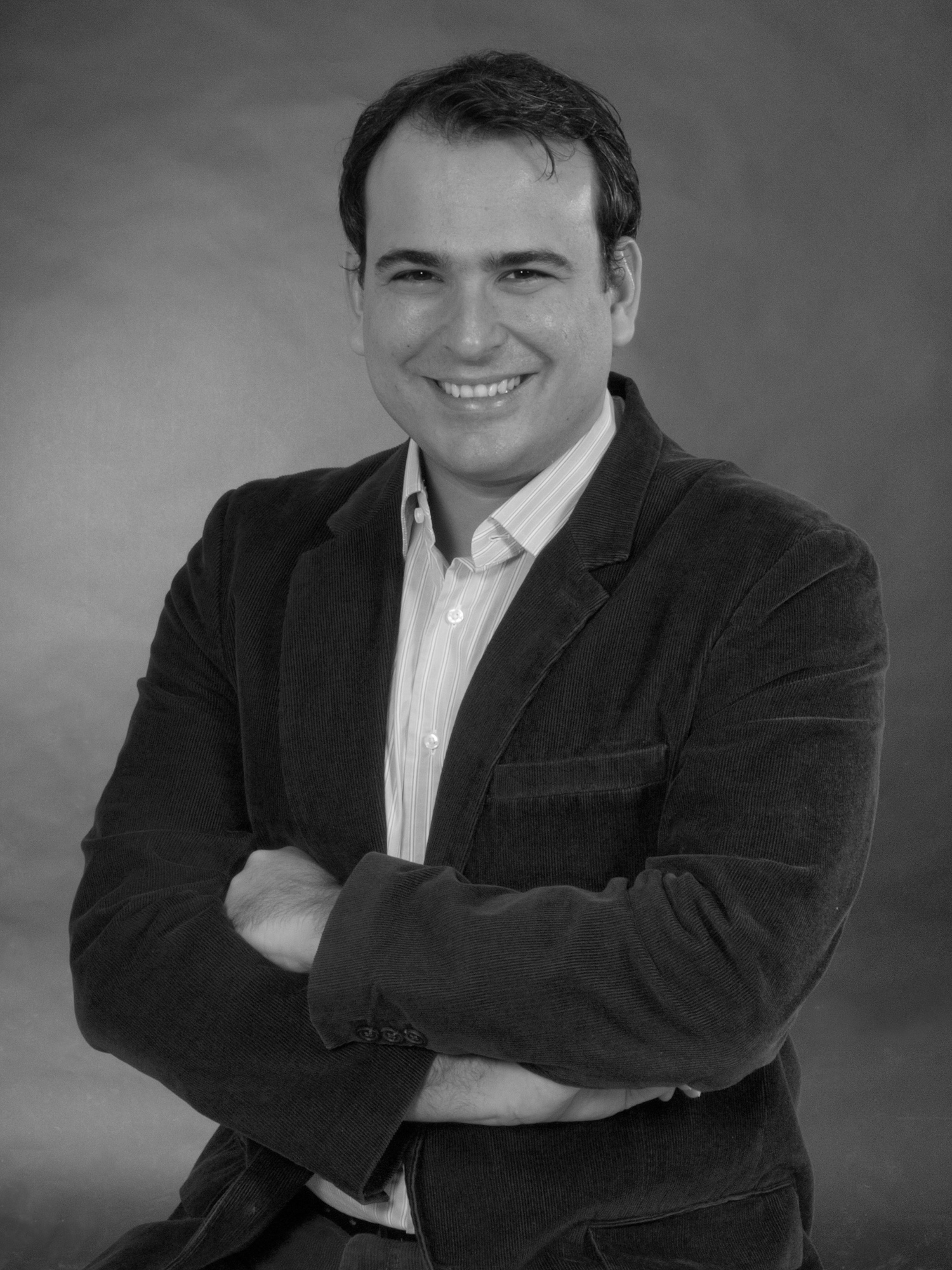
Prof. Dr. Felipe de Barros (Sonny Astani Department of Civil and Environmental Engineering, University of Southern California, 3620 South Vermont Ave., 90089 Los Angeles, CA, USA)
Managing hydro-systems involves developing, distributing and planning of water resources in an optimal and scientifically sound manner. Proper water resources management is key component in order to sustain human health, ecosystem services and food security. However, achieving this goal is an arduous task given that multiple factors such as population growth, extreme events (i.e., droughts and floods), waste disposal facilities and land use change impact both water quantity and quality of both surface and subsurface water resources. For such reasons, there is an ever-increasing demand for developing novel and robust methodologies that (1) improves our fundamental understanding of the interaction between the aforementioned factors on the overall response of a given hydro-system and (2) helps decision-makers to set priorities when allocating resources. This session invites contributions focused on subjects related to managing water resources from aquifers, rivers and lakes. Contributions ranging from stochastic modeling and data analysis of water resources management are within the scope of the session.
Keywords: water quantity and quality; groundwater; rivers; lakes; risk analysis; climate change; optimal design; numerical modeling; data analysis; urban water use; contamination.
Session Chair
Prof. Dr. Felipe de Barros, Sonny Astani Department of Civil and Environmental Engineering, University of Southern California, 3620 South Vermont Ave., 90089 Los Angeles, CA, USA
B. Drinking Water Treatments and Processes with Special Focus on Developing Countries
Section Chair
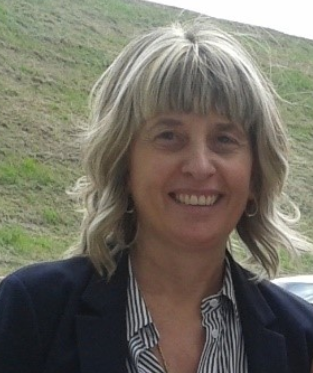
Prof. Dr. Paola Verlicchi (Department of Engineering, University of Ferrara, Ferrara, Italy)
This session will focus on the main issues related to the drinking water treatments with regard to developed as well as developing countries. Contributions may refer to water source quality and its (expected and observed) variability, and to common and innovative treatment solutions able to guarantee a drinkable water.
Subject areas may include:
- common and occasional compounds to remove in case of withdrawal of surface water and groundwater;
- reliability and flexibility of existing water works in fulfilling the required quality;
- emerging contaminants and emerging pathogens in the water sector;
- common water treatment trains for small, medium and large communities;
- innovative solutions for the drinking water sector based on lab and pilot scale plants as well as full scale water works;
- case studies related to upgrading plants;
- cost-benefit analysis of existing water works as well as of designed water works solutions;
- safety measures in drinking water works aiming to guarantee the required level of water quality;
- case studies related to accidental events (occasional and not expected worsening of the water source quality, malfunctioning of a water treatment step, equipment damage…);
- sustainable water treatment trains for developing countries;
- case studies aiming to increasing the access to water in developing countries.
Keywords: water quality; contaminants of emerging concern; water treatments; safe water; cost-benefit analysis; developing countries; developed countries.
Session Chair
Prof. Dr. Paola Verlicchi, Department of Engineering, University of Ferrara, Ferrara, Italy
C. Water Supply and Distribution Systems
Section Chair
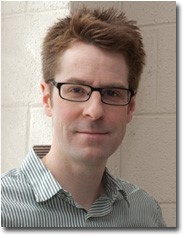
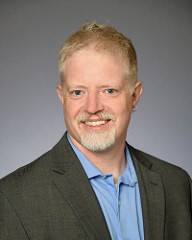
Prof. Dr. Yves Filion (Department of Civil Engineering, Queen’s University, Kingston, Ontario, Canada) (left)
Prof. Dr. Dominic Boccelli (Department of Civil and Architectural Engineering and Mechanics, University of Arizona, Tucson, Arizona, USA) (right)
Water supply and distribution systems are crucial to the functioning of modern societies. With the advent of global climate change, cyber-security threats, environmental degradation, and deteriorating and aging infrastructure, the focus on the proper design, management and operation of these systems has never been more crucial. In this spirit, the session will provide a forum for presenting research related to all aspects of water supply and distribution systems that pertain to the planning, design, management, and operation under changing climate environments. Topics will include: Water distribution system (WDS) modelling, security, reliability and resilience of WDSs; Climate change and impacts and management of water supply and distribution systems; Smart water systems; Real time monitoring, modelling, prediction control; SCADA, GIS and data management issues in WDSs; Water distribution network optimization: planning, design, rehabilitation and expansion; Water quality modelling and laboratory-/field-scale studies in distribution systems; Potable water re-use / integrated non-potable and potable systems; Demand forecasting, leakage and energy management; Big data techniques for water distribution analysis; Emerging technologies in water distribution systems practice.
Keywords: water supply and distribution systems; sustainability; climate change; modelling; planning; design; rehabilitation; optimization; water quality; water demand; leakage; energy; smart technologies.
Session Chairs
Prof. Dr. Yves Filion, Department of Civil Engineering, Queen’s University, Kingston, Ontario, Canada
Prof. Dr. Dominic Dominic Boccelli, Department of Civil and Architectural Engineering and Mechanics, University of Arizona, Tucson, Arizona, USA
Show all published submissions (7) Hide published submissions (7)
Submissions
List of Papers (7) Toggle list
D. Sanitary, Storm and Combined Sewers and Related Control Works
Section Chair
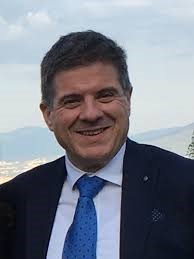
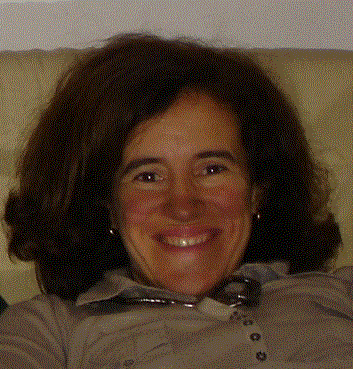
Prof. Dr. Corrado Gisonni (Hydraulic Engineering, Department of Engineering, Università della Campania ‘Luigi Vanvitelli’, 9 Aversa Caserta 81031, Roma, Italy) (left)
Prof. Dr. Rita F. Carvalho (Marine and Environmental Sciences Centre (MARE), Department of Civil Engineering, University of Coimbra, R. Luís Reis Santos, Pólo II, 3030-788 Coimbra, Portugal) (right)
Climate change is assumed as the future scenario affecting the environment, heritage and existing infrastructures in today's society. An impact is expected in terms of increasing frequency of extreme storm events with implications for the operation of sewer systems, discharge structures and flood control measures, essentially due to the increase in stormwater runoff. An increasing number of exceptional events and floods is reported in urban areas, with heavy consequences in terms of environmental protection and urban safety (i.e. landslides, sediment trails, pollutant discharges, etc.). The cascade effects of these phenomena is leading to significant damage to the environment which could be irreversible.
This session will focus on the main issues related to the urban drainage systems, aiming to understand, model and predict general performance of existing/conceptual systems, including quantity and quality aspects.
For instance, contributions may refer to:
- urban flooding mitigation strategies and effective stormwater management strategies for robust decision making;
- calibration/validation of the hydrological/hydraulic models;
- alternative sustainable solutions and integrated assessments of green infrastructure for flood mitigation, restoring hydrological cycle;
- new design concepts for extreme events and urban floods;
- failure scenarios under climate change conditions analysis and discussion;
- new models and methodologies to monitor, operate systems and providing reliable warnings to the public;
- hydraulic structures for mitigation flood risk and/or prevention of pollutant dispersion;
- Inter-disciplinary approaches for local, regional and global relevance policies.
Keywords: stormwater sewers; combined sewers; hydrological/hydraulic models; flood control; extreme events in urban context; sustainable urban drainage systems (SUDS); green infrastructure (GI); low impact development (LID); stormwater control measures (SCM); best management practices (BMPs); water sensitive urban design (WSUD); integrated urban water management (IUWM).
Session Chairs
Prof. Dr. Corrado Gisonni, Hydraulic Engineering, Department of Engineering, Università della Campania ‘Luigi Vanvitelli’, 9 Aversa Caserta 81031, Roma, Italy
Prof. Dr. Rita F. Carvalho, Marine and Environmental Sciences Centre (MARE), Department of Civil Engineering, University of Coimbra, R. Luís Reis Santos, Pólo II, 3030-788 Coimbra, Portugal
Show all published submissions (6) Hide published submissions (6)
Submissions
List of Papers (6) Toggle list
E. Wastewater Treatment Modeling, Optimization and Control
Section Chair
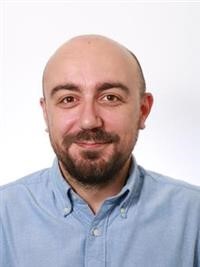
Prof. Dr. Panagiotis G. Kougias (Waste Management & Bioprocessing , Hellenic Agricultural Organisation- DEMETER, Soil and Water Resources Institute, PO Box 60458, 57001, Thermi, Thessaloniki, Greece)
Till recently, the treatment of wastewater was mainly associated with consequent environmental benefits. However, in the era of circular bio-economy, wastewaters are considered as valuable resources promoting sustainable deployment and establishment of modern, zero-waste communities. Thus, efficient wastewater treatment facilities can lead to minimizing carbon and water footprints, while several high-value market products can be recovered.
Nowadays, cutting-edge technologies combined with interdisciplinary approaches pave the way for more sophisticated wastewater treatment processes. It is envisaged that advanced monitoring and control will be a core element in future wastewater treatment plants resulting in process optimization. Several monitoring sensors and tools are already emerging, and it is foreseen that their coupling with control models and algorithms will dominate the decision-making process of the wastewater treatment plants.
This session welcomes different perspectives within the topic of “Wastewater treatment modeling, optimization and control”, including engineering, bioprocesses, microbiology, modelling, resource recovery and circular economy.
Keywords: wastewater treatment; modeling; control; bioprocess; biodegradation; microbiology; resource recovery; circular bio-economy.
Session Chair
Prof. Dr. Panagiotis G. Kougias, Waste Management & Bioprocessing , Hellenic Agricultural Organisation- DEMETER, Soil and Water Resources Institute, PO Box 60458, 57001, Thermi, Thessaloniki, Greece


















































